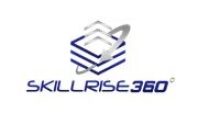
Certificate in Emotional Intelligence
Unlock the power of emotional intelligence to improve self-awareness, build stronger relationships, resolve conflicts, and excel personally and professionally.
Interested in attending? Have a suggestion about running this event near you?
Register your interest now
Description
Emotional intelligence (EI) is essential for building strong relationships, improving communication, and fostering personal and professional growth. The Certificate in Emotional Intelligence empowers individuals to explore the depths of their identity through introspection, enhancing their self-awareness and understanding of their emotions. This course covers the nature and value of emotions, teaching participants how to leverage their emotional intelligence to improve both personal effectiveness and interpersonal dynamics. By developing a deeper appreciation of oneself and others, participants can enhance their relationships, resolve conflicts more effectively, and promote a positive and collaborative work environment.
The program further delves into the five key components of emotional intelligence—self-awareness, self-regulation, motivation, empathy, and social skills. Participants will learn practical tools for managing their emotions and understanding their impact on interactions in personal and professional settings. Focusing on improving verbal and nonverbal communication skills, the course provides actionable strategies for building rapport, resolving conflicts, and making a positive impression. Ultimately, this course helps professionals harness the power of emotional intelligence to boost workplace productivity, build stronger teams, and foster a culture of personal and professional development.
Program Outcomes
Discover how to define the self and explore different aspects of personal identity through introspection.
Gain an understanding of the nature and value of emotions and learn how to appreciate yourself and others.
Learn how to improve personal effectiveness by leveraging self-awareness and emotional intelligence.
Understand how to appreciate the role of emotional intelligence in enhancing relationships and fostering personal growth.
Define emotional intelligence and emotions and understand their impact on personal and professional interactions.
Identify the components of emotional intelligence and discover tools to gain control over your feelings.
Learn practical verbal and nonverbal communication skills to improve relationships and conflict resolution.
Understand how to apply emotional intelligence in the workplace, recognize its benefits, and determine ways to make a great impression on others.
Who should register for this program?
The Certificate in Emotional Intelligence is ideal for professionals looking to enhance their emotional intelligence and improve their communication and relationship-building skills. This course is especially valuable for individuals in leadership and customer-facing roles and those seeking to enhance their personal and professional interactions.
- Managers and Leaders: Enhance your ability to lead with empathy and self-awareness, fostering stronger relationships with your team and improving overall leadership effectiveness.
- HR Professionals: Improve your ability to manage interpersonal dynamics, resolve conflicts, and create a workplace culture that values emotional intelligence for better employee engagement and retention.
- Customer Service Representatives: Learn how to manage emotions, empathize with clients, and communicate clearly to build rapport and resolve customer concerns efficiently.
- Team Members and Collaborators: Strengthen your ability to communicate, collaborate, and resolve conflicts in a way that improves team dynamics and fosters a positive working environment.
- Aspiring Leaders: Develop the emotional intelligence necessary for leadership roles by learning to manage emotions, understand others, and apply EI to inspire and motivate teams.
Improved emotional intelligence will benefit each of these roles. They will gain tools to communicate more effectively, build stronger relationships, and manage emotions in challenging situations, ultimately enhancing their personal and professional growth.



